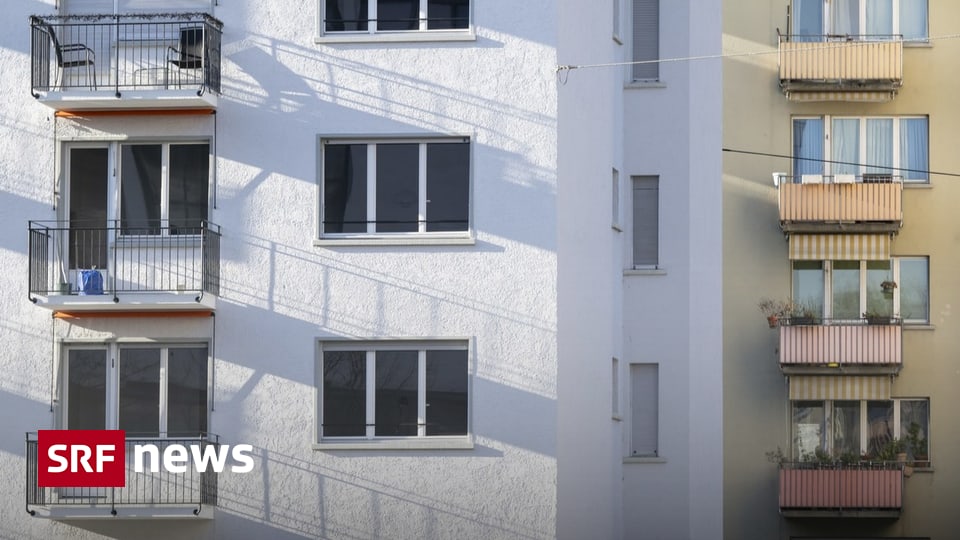Contents
Scarce living space and rising prices: Housing is becoming more and more expensive. What can be done about it is highly controversial.
Switzerland is a country of tenants. 60 percent of the population lives in rent. Since the turn of the millennium, rental prices have increased by an average of 32 percent and the trend is continuing.
In 2024, market rents would rise by an average of 2.5 percent, says UBS real estate specialist Claudio Saputelli. This comes after an increase of 4.7 percent last year.
One of the reasons is the high demand for living space when supply is scarce, especially in cities. Representatives of tenants’ and landlords’ associations discuss controversial topics relating to renting in “Eco Talk”.
Is renovation just to drive up rents?
Landlords can increase the rent not only when costs rise, but also after renovations. Is that why they are renovating unnecessarily?
There is a connection to this in that rents are increased especially after vacancy notices, says Linda Rosenkranz, Secretary General of the Swiss Tenants Association. That’s why landlords often give notice of tenants and look for new tenants: “Then they raise the rent as much as people are willing to pay – without adhering to tenancy law.” The tenants’ association strongly criticizes this. Tenancy law must be guaranteed.
“No landlord renovates at his whim just to increase rents,” counters Markus Meier, director of the Swiss Homeowners Association. The reason for rent increases after renovations is primarily more expensive building materials and higher costs for energy-efficient renovations, and space requirements have also increased.
Controversial rent restrictions against yield renovations
A nuisance for tenants are expensive renovations that, in their opinion, were not necessary. In the canton of Zurich, the housing protection initiative wants to ensure that rents can only be increased to a limited extent after renovations.
The canton of Basel-Stadt, which introduced a housing protection law two years ago, has experience with this. Recently, Baloise, one of the largest real estate providers in Switzerland, announced that it was foregoing renovations in Basel because they were not profitable.
“For me there are actually only losers,” says Daniel Petitjean, managing director of the Basel real estate company Warteck Invest: “Tenants live in increasingly older apartments. Those who are looking for an apartment cannot find one because the supply is becoming scarcer. The industry no longer has any orders, and the environment is suffering because the necessary energy renovation measures are not being taken.”
It is the death of the real estate market in Basel.
“It is the death of the real estate market in Basel,” says Markus Meier. In addition, because of the Housing Protection Act, the government’s goal of being climate neutral by 2037 cannot be achieved.
Linda Rosenkranz sees it differently: “The electorate decided in favor of the new law because of the return restructuring.” Previously you paid much more. “It was high time to put a stop to it because rents are basically exploding.”
For her it is clear: “I hardly assume that Zurich or Winterthur will also introduce housing protection – because they need it.”
Zurich and Winterthur will also introduce housing protection – because they need it.
Housing protection after renovations: bureaucracy or guarantee for affordable housing? Whether this is the solution to excessive rent increases remains to be seen.
How the reference interest rate influences rents
Open box Close box
The mortgage reference interest rate is used in Switzerland to adjust rental rates. It is the average interest rate that must be paid on mortgages. The Federal Housing Office sets the Reference interest rate four times a year.
If the reference mortgage interest rate increases, landlords can increase the rent. If it falls, the rent should also be adjusted downwards. For this purpose, the tenant can request a rent reduction.
After the Swiss National Bank’s key interest rate cut last week, it is likely that the reference interest rate will not rise any further in the near future. It last rose from 1.5 to 1.75 percent in December 2023.
